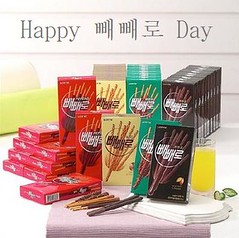Koreans have many greeting expressions that are quite funny when I hear (or use) them.
Most common "Hello" in Korean is "An-nyung-ha-se-yo?" ("Doing well?", literally) in respected form and "An-nyung" ("well") in non-respected...
To say "Bye", sometimes people say "Stay well" (sort of like "take care") or "Go well" (sort of like "Have a safe trip [to wherever you're going]") depending on whether the other person is staying or leaving the then-current location.
Not so strange so far, but there are some peculiar greetings such as...
"Have you eaten?" when greeting somebody shortly after a meal time... very common greeting at work. It's not like they're offering to eat with you if you haven't. If you answer "no", people usually just say "Why not? You should eat..." I should say "No. Good thing you asked, though, because I didn't have anybody to eat with... you want to go get lunch together?" That would put them in an awkward spot if they have eaten and/or if you're not really close to them.
"You came?" when meeting somebody as expected. Obviously, you're there. Of course you came. You would reply back "Yeah, I came." or "I returned" in case you return after a departure (at home or at work). When my mom asked "you came?" whenever I returned home from school, I often jokingly replied back "no"... my mom thinks I'm a strange kid anyways.
"I will go in" or "Go in" when parting ways, in respected form. In reference to you going inside your home, you would use this greeting if you're parting away from somebody or vice versa. People use this even when the people are not going "inside" anywhere. I found it especially strange when people used this when hanging up the phone... since both of you could be talking on the phone at home.
"Hang up" or "Mmm" as other greetings for hanging up the phone. You could use the regular "bye"s for hanging up the phone, but people also often say "hang up" as a means of saying "bye". Even more peculiar... Koreans use a "mmm" or "eung" as an informal "yes" (more like "yeah") and they use this to hang up a call. However, often you find both sides of a phone conversation saying "mmm" multiple times before actually hanging up. A common visualization of a Korean person hanging up the phone is someone saying "hang up mmm mmm mmm mmm...." as he/she slowly lowers his/her head along with the receiver then finally putting down the receiver and hanging up.
"Work hard" or "Suffer" as a parting greeting at work or to somebody working. You actually tell somebody to "work hard" or you say "you're going through a lot of trouble" as a "hello" alternative. I guess it sort of makes sense if you're saying that you appreciate their troubles they're going through, but I've often heard people tell others to literally "suffer". That's a little extreme, in my opinion, but I've heard a counter-argument where somebody said people use the expression because, back in the old days, it was considered to be of good fortune to be suffering as a result of working.
Besides verbal greetings, Koreans follow the respected vs non-respected forms of physical greetings. When greeting an older person, people bow or shake hands but a handshake has to be accompanied by a bow and the other hand holding the shaking arm or somewhere on the torso. Koreans do not use any form of kissing and hardly any hugging. Very little physical contact when greeting, in general, compared to western cultures.
Ladies doing the "45-degree belly button bow", thanks for all your sufferance.










